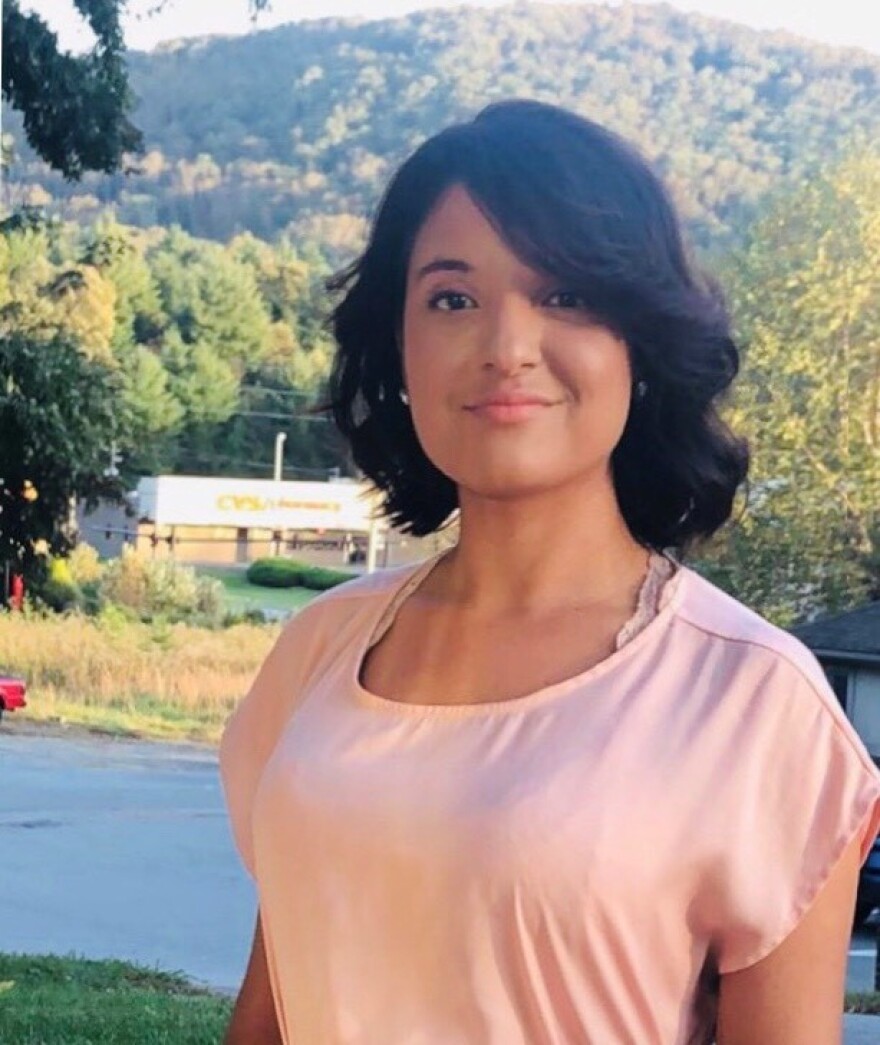Appalachian English is a term linguists use to describe the speech patterns of people in Appalachia. It’s also referred to as “mountain talk.”
But there’s variation within the dialect, just as there is among the nearly 26 million people who populate the diverse region, which covers 13 states.
When Waynesville, NC native David Angel moved to Boston for a job, one of his coworkers took issue with his pronunciation of certain words.
“She said ‘you have a lazy ‘I,’” Angel said. “So she gave me a tape on how to say words like ‘July’ in a Northern State that made me sound more professional when I needed to sound that way.”
How did he feel about that?
“It frustrated me! Because I’m just as smart as you are, I just say words different than you do,” Angel said.
Angel owns Elevated Mountain Distilling Company, in Maggie Valley. Nowadays, when he leads tours of the distillery, he’s deliberate about how he talks.
“I’ve learned to use more of a Midwest accent when I’m talking because we’ve had people from all 50 states and all 50 countries here, and they understand the Midwest accent,” Angel.
Angel’s careful to pronounce certain words, like “fusel oil.” He has to fight off the instinct to pronounce it, “ole.” But he adds, he feels he can let loose and talk like he’s at home, when he’s joined by fellow Southerners and Western North Carolinians.

It’s that negative perception Angel confronted in Boston -- the opinion that his Southern Appalachian dialect didn’t sound professional -- that linguists are hoping to dismantle.
“Language diversity in North Carolina is one of its richest resources,” Walt Wolfram, distinguished linguistics professor at NC State University, said.
“We celebrate our wonderful Southern writers, we celebrate our artists, we celebrate our songwriters, but we tend to stigmatize language,” Wolfram said. “One of the things we need to understand is that language is part of our history, it’s part of our tradition and we need to start celebrating that.”
Wolfram also directs the North Carolina Language and Life Project. Through their research, Wolfram and his cohort are showcasing the variety of speech patterns and distinct words found across the Old North State.
It turns out, Western Carolina is rich with dialect diversity, owing largely to the mountains. Wolfram says isolation created by the rugged terrain has the potential to preserve certain words that a community just a few miles down the road might not understand.
“One county may use a term for a red squirrel that’s called a ‘boomer.’ Another county or a holler doesn’t,” Wolfram said. “One county in the Smoky Mountains where we did research, they used a term for ‘crooked,’ which is ‘siggoglin.’”
“Holler,” or “hollow,” is a word found in Appalachian English that describes the valleys between mountains.
Linguists also attribute particular sounds and speech patterns to the Appalachian region. For instance, the long “I” sound that gave Angel grief in Boston. It’s found in words like “nice” and “rice.”
University of Alabama professor Paul Reed says dialects serve a social purpose. They offer a sense of belonging, like being part of a tribe.
“There’s always going to be this idea of these are my people, their people,” Reed said. “Some of the stereotyped things might be reclaimed or they may be passed on.”
Dialects are also always shifting. This can be credited to different factors, like technology, access to education, and people moving in and out of the region.
“My name is Carolina Siliceo Perez, and I grew up in Hendersonville, North Carolina.”
Siliceo Perez reads a sentence I crafted -- with the help of some linguists -- to capture markers found in the Appalachian dialect.
“Aunt Stella’s dress caught fire because she forgot to unplug the iron,” Siliceo Perez said.
She picked up that long “I” in “iron” from growing up in Western North Carolina. But at home, she spoke Spanish with her parents, who were migrant farm workers. She grew up eating Southern barbecue but she says nothing beats carnitas, Mexican pulled pork.

Siliceo Perez represents Appalachia’s changing demographics, as the minority population in the mountains has grown to almost 20 percent. But there have been communities of color in the regional all along, to include the Eastern Band of Cherokee Indians.
Which brings up another stereotype the researchers are confronting in their work -- the notion that to be Appalachian is to be white.
Becky Childs, a linguist at Coastal Carolina University, studied a small historically black community, called Texana. It’s nestled in the mountains of Cherokee County in Western North Carolina.
Her survey of African American women there revealed the same sounds and speech patterns reflected throughout Appalachia. For instance, a phenomenon called “a-prefixing,” putting the letter "a" in front of a verb.
“Like, 'I went a-huntin and a-fishin,'” Childs said.
But when she played recordings of their speech to analyze perceptions, she says, listeners assumed the women were white.

“Because that was the stereotype, if you’re Appalachian, then you’re white,” Childs said.
She says the word ‘Appalachian’ can be problematic -- some people don’t feel their lived experience qualifies. Others don’t want to befall the stereotype.
That’s why part of the North Carolina Language and Life project includes materials for teachers to incorporate in the classroom. Walt Wolfram says he hopes instead of feeling shame, people will be encouraged to celebrate their heritage, to include how they sound.





